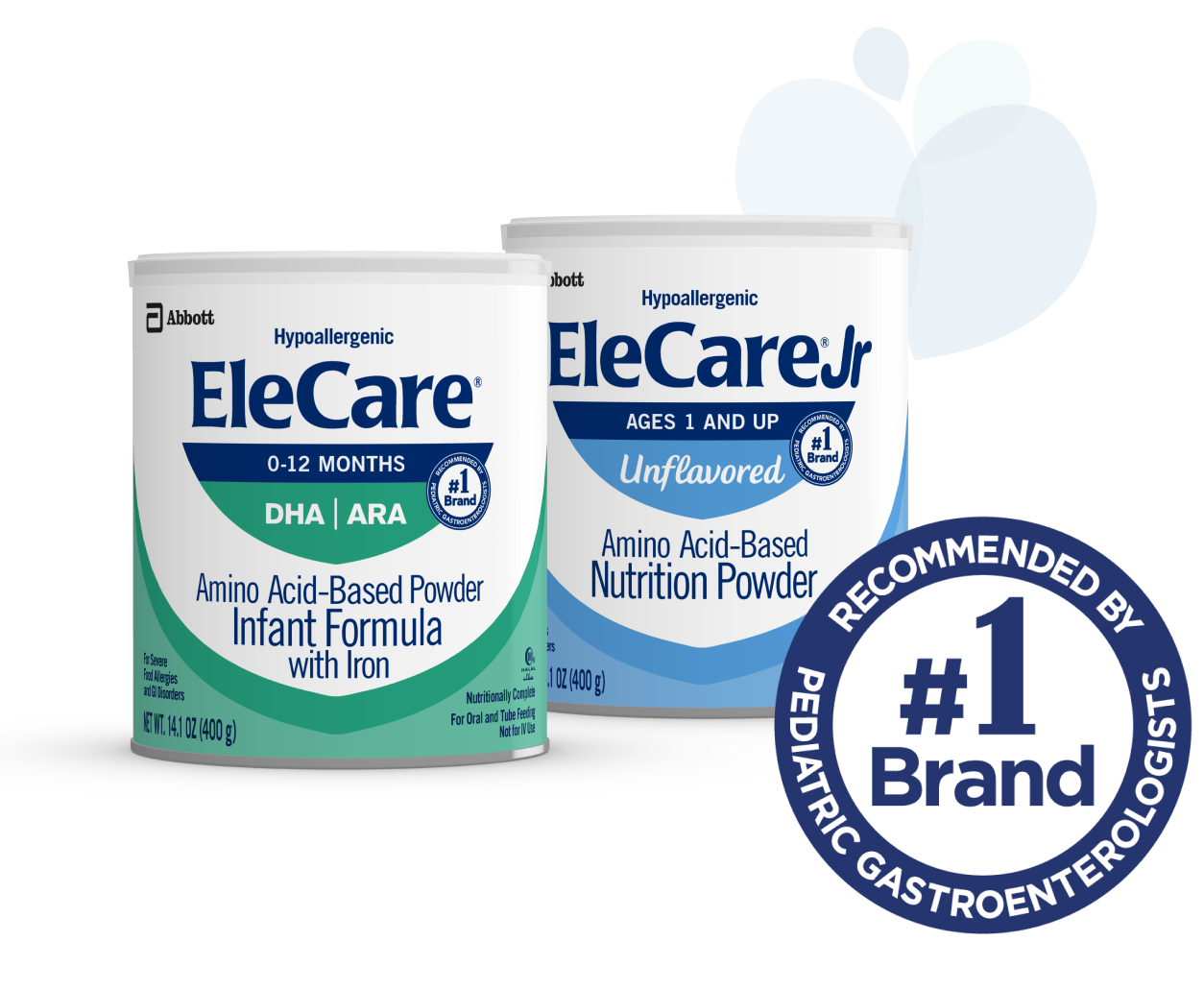Kaareen’s Story
Learn how EleCare helped one young patient beat the odds and get back to loving life.
FPIES is a non-IgE-mediated food allergy typically presenting in infancy. In formula fed infants, FPIES is commonly triggered by cow's milk or soy protein.
The range, severity and duration of symptoms vary from child to child. They may include:
Decreased activity level
Pallor
Self-resolving: child is able to tolerate oral rehydration at home
Activity level ranges from decreased to lethargy
Pallor
Dehydrations requiring intravenous hydration


EleCare and EleCare Jr are nutritionally complete, hypoallergenic amino acid-based formulas for infant and children who cannot tolerate intact or hydrolyzed protein.

The FPIES Foundation gives people living with food protein-induced enterocolitis syndrome the tools and confidence they need to achieve normalcy in their lives.

Learn how to improve the day-to-day lives of children with food allergies and empower them to create a safe and healthy future.

Get the facts on what food allergies are – and what they aren’t. And learn how to recognize the symptoms and seek testing from a healthcare professional.

Learn how EleCare helped one young patient beat the odds and get back to loving life.
Your child is not alone. In fact, it’s estimated that 4 out of every 100 children in the US have food allergies.
Read More(EGIDs) are chronic digestive system disorders in which certain food proteins trigger an overproduction of eosinophils (white blood cells that help fight certain infections) in different areas of the digestive tract.
Read MoreShort bowel syndrome describes a group of problems affecting individuals who have lost the use of a major part of their small intestine.
Read MoreFPIES is an immune reaction in the gastrointestinal system to one or more specific foods. It’s commonly characterized by profuse vomiting and diarrhea.
Read MoreNutritionally complete, amino acid-based EleCare and EleCare Jr are helpful in the dietary management of a number of GI conditions that cause malabsorption issues.
Read MoreReferences:

EleCare may be eligible for insurance coverage. Our Pathway Plus specialists can help you navigate this process to determine if you have coverage and help connect you to a supplier for product delivery.
Learn MoreEach health care provider is ultimately responsible for verifying codes, coverage, and payment policies used to ensure that they are accurate for the services and items provided. Providers should consult with the insurance plan for complete and accurate details concerning documentation for claims. Abbott does not guarantee reimbursement by any third-party insurance plan and will not reimburse physicians or providers for claims denied by third-party insurance plans.
